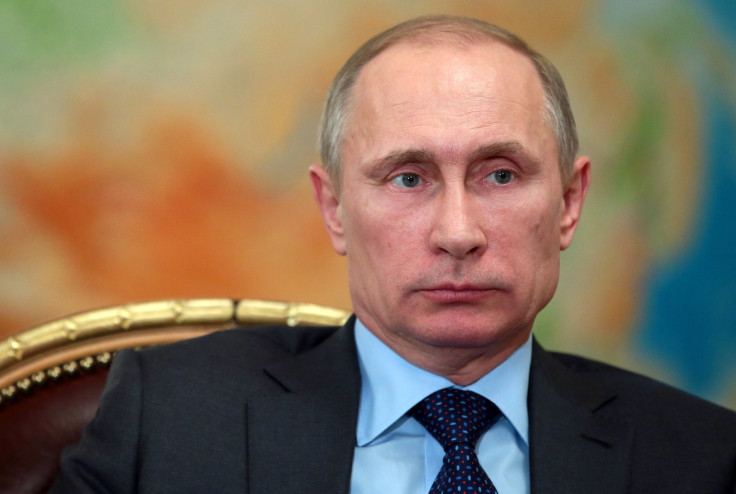Russian Law Proposes Foreign Asset Seizures To Compensate Those Affected By Ukraine Sanctions

Russia took the first step Wednesday toward enacting a law that would allow foreign-owned assets to be seized and used to compensate citizens and companies that have been targeted by Western Sanctions over the war in Ukraine.
The legislation is known unofficially as the “Rotenberg Law” in Russia, named after Arkady Rotenberg, a wealthy industrialist and close ally of Russian President Vladimir Putin who had $40 million of real estate in Italy seized by authorities there under U.S. and EU sanctions.
The bill stipulates that Russians whose "rights are infringed" by foreign courts can apply for compensation from the Russian state. Russian courts can then order the seizure of assets owned by the country in question in Russia, to recoup the cost, according to the Financial Times. The types of assets that can be seized for compensation include diplomatic real estate.
The lower house of Russia's Parliament, known as the Duma, passed the bill by a vote of 233 to 202, an unusually close margin in the Russian legislature, where unanimous votes are not uncommon. The bill must pass the Duma three times, before being passed by the upper house once, and then being signed by President Putin to become law.
U.S. and EU sanctions over Russia's support for rebels in Eastern Ukraine were intended to target an “inner circle” of elite oligarchs and industrialists who are close to Putin. In addition to Rotenberg, the sanctions also designate businessmen Gennady Timchenko, an oil-to-banking billionaire, and Vladimir Yakunin, the head of the national railway, (both are subject to U.S. sanctions only) who both have said they have no intention of pressuring Putin to pull back militarily from Ukraine, according to a New York Times report.
Critics of the legislation have said that it is shielding the super-rich from the impact of sanctions at the expense of ordinary Russians.
“Why should we compensate people with yachts on the Côte d’Azur when we can’t support unborn children?” Alexei Didenko, a Liberal Democratic Party lawmaker from Crimea, was quoted as saying in a Bloomberg report. He was referring to a debate among Russian lawmakers whether to discontinue a program that provides cash payments to mothers.
Russia's Economy Minister Alexei Ulyukayev was also critical of the legislation, warning that it could cause further capital outflow, according to Reuters.
"Basically, we encourage the outflow of capital from the country in different forms, that is not the objective of our economic policy," Ulyukayev, who spoke in the Duma before the bill's reading, said. "From my point of view [the law] would be counterproductive." The Moscow Times reports that Russian Finance Ministry estimates show that Russia's capital outflow will hit $120 billion, or 6 percent of GDP, this year.
Western companies own billions of dollars in Russian-based assets.
Note: This article was amended to clarify that Gennady Timchenko and Vladimir Yakuni are subject only to U.S., not EU sanctions.
© Copyright IBTimes 2024. All rights reserved.





















